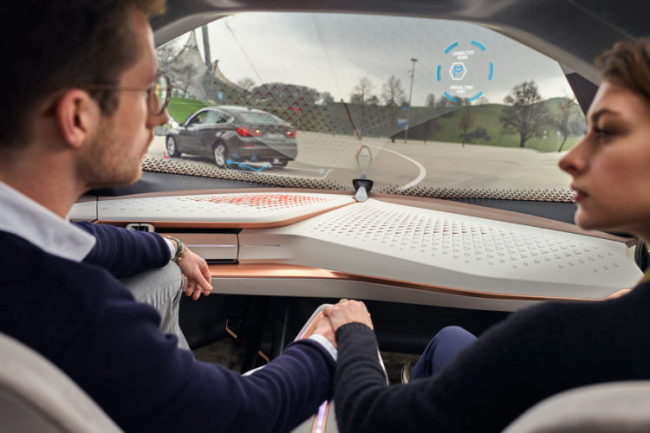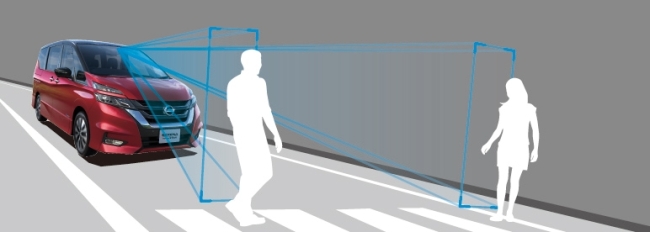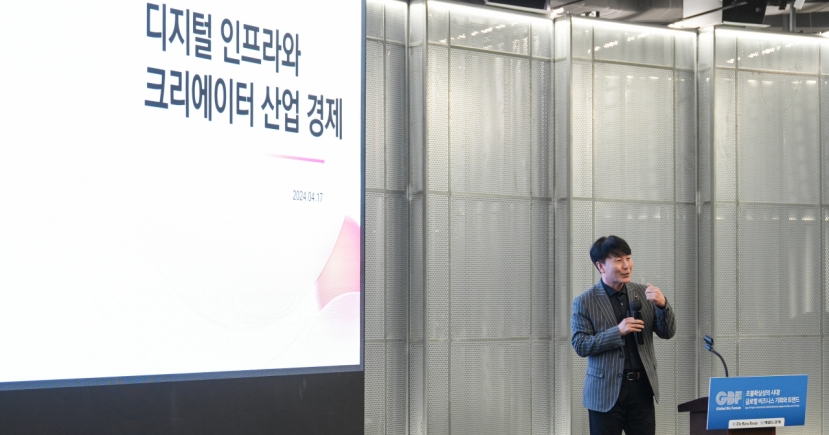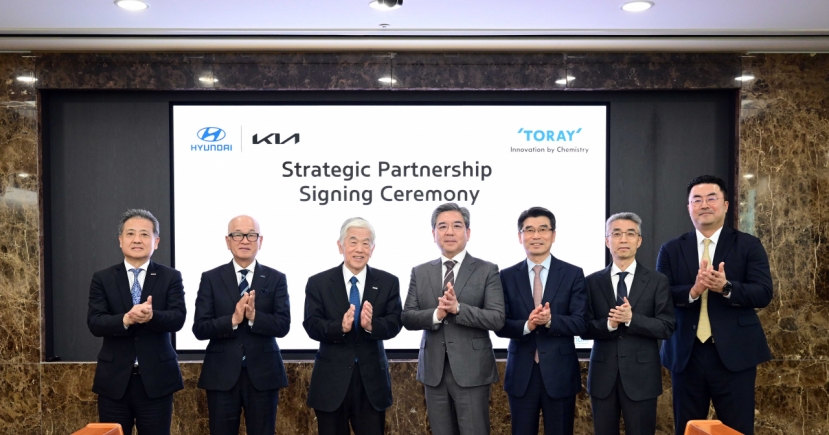Automobiles
Driving closer to being a chore of the past
[THE INVESTOR] A mere three years from now, the public can expect to see fewer manually driven cars on the road.
Autonomous technology has become the new wave of the future for the automotive industry, as worldwide sales of self-driving cars are forecast to reach annual sales of 20 million units by the year 2035, according to a report by the Korea Institute for Industrial Economics and Trade.
 |
Promotional image for BMW's Vision Next 100 self-driving car. BMW |
“The smart car market will expand to a large extent as self-driving cars are expected to hit the road around 2020,” the report said.
In Korea, self-driving technology has also been at the forefront of the country’s leading automaker and advanced technology firms. SK Telecom has been working with Germany’s BMW to implement faster data transmission in connected cars, while LG Electronics joined hands with Volkswagen last year to develop the company’s next generation of smart vehicles.
Korea’s Ministry of Land, Infrastructure and Transport is also developing the country’s first autonomous test driving ground, K-City, which is expected to open in October.
Some luxury automakers including Mercedes-Benz and BMW are striving to take their autonomous technology one step further. Not only do the two German auto powerhouses seem to be striving to make manual driving a thing of the past, but they are looking to drastically alter how the public views the concept of a car.
On the other hand, major Asian automakers Hyundai Motor Group and Nissan have adopted more simplistic and practical approaches. Both companies are working toward equipping standard vehicles with self-driving options, as opposed to a complete vehicle overhaul -- a move attributed to making autonomous cars more affordable to the general public.
Late last year, the country’s largest automaker unveiled the prototype for its flagship self-driving car, the autonomous Ioniq. While its outward appearance is indistinguishable from an ordinary car, one of Hyundai’s biggest concepts for the future Ioniq is to develop a model that is affordable to the average consumer.
The vehicle is equipped with the necessities of autonomy, including forward-facing radars and lane keep assist cameras, using a lower-cost platform with integrated LiDAR (light detection and ranging) technology.
Last month, Hyundai Motor Group tapped former GM researcher Lee Jin-woo to head the company’s research and development for autonomous technology. It is expected to introduce self-driving vehicles into the market by 2020.
Nissan took its autonomous driving technology to the streets of Europe for the first time last week, testing out its latest ProPilot technology in London. The Japanese automaker pledged to create a zero-emission and zero-fatality future of mobility.
ProPilot is a self-driving technology designed for highway use to maintain a car in a single lane. Taking things a step further, Nissan is developing its own multilane autonomous driving technology, which can automatically change lanes on highways. It is expected to introduce the technology sometime next year.
 |
A computer image of Nissan's new Leaf model with autonomous driving capabilities. Nissan |
“The test, conducted on demanding road conditions in downtown London, will clearly demonstrate Nissan’s commitment to provide intelligent mobility to its customers,” said Takao Asami, vice president of Nissan Research and Advanced Engineering, in a press release last week.
By 2020, the automaker says it plans to release technology capable of autonomous driving in urban roads and intersections. Future models of both the Nissan Qashqai and Leaf are slated to be equipped with ProPilot.
On the other side of the autonomous spectrum, luxury car brands Mercedes and BMW are not only giving their vehicles’ technology an advanced futuristic facelift, but the exterior and interior of automakers’ future autonomous models look like they’ve been plucked straight out of a science-fiction movie.
With the upcoming Benz F 015, the “driver” is no longer facing the road. In fact, in this luxury model, passengers in the front and back seats are facing one another, separated by a small coffee table, in what the company refers to as the future of cars becoming a living space.
Equipped with Benz’s Intelligent Drive, the technology has been reportedly in the works for the past 15 years.
“Anyone who focuses solely on the technology has not yet grasped how autonomous driving will change our society,” said Dieter Zetsche, head of Mercedes-Benz, on the company’s homepage. “The car is growing beyond its role as a mere means of transport and will ultimately become a mobile living space.”
Fellow German car company BMW is also looking to make a big splash in the autonomous vehicle industry by combining its auto-pilot technology with luxury. BMW is working in collaboration with Intel and Mobileye, an Israeli tech company that develops vision-based driver assistance systems.
The company’s flagship luxury autonomous prototype is the Vision Next 100, a smart car that allows both the driver and passengers to focus on matters other than traffic conditions.
Offered with the company’s “ease mode,” the vehicle’s smart companion takes over all of the driving responsibilities, allowing the driver to become a passenger. Using its multi-widget function, the driver can then use the car’s windshield as a multimedia screen to surf online and connect to social media.
According to BMW’s timeline, the company is projecting to have a complete line of fully-autonomous cars by 2021. The company also announced it would introduce a fleet of 40 self-driving prototypes ready to be tested on the roads by the second half of this year.
By Julie Jackson/The Korea Herald (juliejackson@heraldcorp.com)








